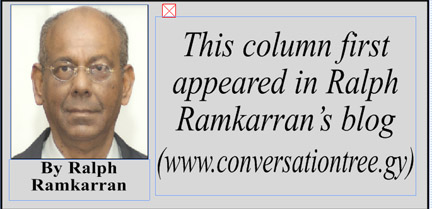When the US Government under President Bush decided in 1990 that it would support free and fair elections in Guyana, it was the Carter Center that was called upon to act as the midwife for a new era of democracy in Guyana. Even though the Hoyte government’s lifeline of international financial and diplomatic support had been partially severed, the government still resisted the reforms demanded by the then opposition. It required the renowned stature and nuanced diplomatic skills of President Carter to negotiate the necessary concessions that would guarantee free and fair elections. President Carter’s name will remain forever associated with Guyana’s democracy.
President Carter and the Carter Center remained engaged with Guyana. It established a permanent office, mounted a second full observer mission for the 2001 elections and conducted a focused observation for the 2006 elections. On both occasions it concluded that the elections were free and fair. Even though the opposition has never accepted the credibility of any elections after 1992, the presence of the Carter Center and other observer missions and their positive conclusions, satisfied the international community. As a result the opposition’s campaigns had little traction outside Guyana. Today we have the ludicrous spectacle of both parties alleging that the 2011 elections were rigged against them.
After the 1992 elections the Carter Center assisted in preparing the National Development Strategy (“NDS”) in six volumes, which was launched by President Jagan on January 6, 1997. It was finalized in 2000 after civil society participation under the leadership of Dr. Kenneth King, a leading official of the PNCR at the time. It was thereafter described on the NDS website as seeking “to define our most urgent priorities and, in every case, clearly lays down concrete policy reforms and

